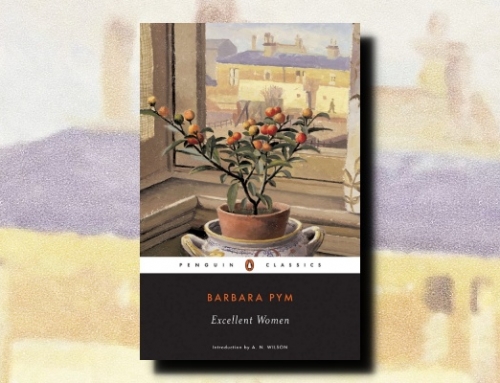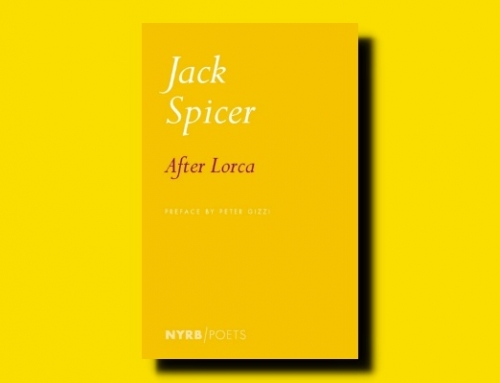Blue Nights by Joan Didion (2011) Knopf (2011) 208 pp
After the success of Joan Didion’s 2005 book The Year of Magical Thinking, it is unlikely people don’t know the tragic event that became the cause of writing that book: the death of Didion’s husband on the evening of December 30, 2003, after the couple had visited their adopted daughter, Quintana, who, days before the death, was hospitalized for pneumonia and developed septic shock. She was unconscious when her father died. Didion wrote the book in the fall of the following year, and Quintana was still hospitalized. Sadly, Quintana died in August of 2005. In Blue Nights Didion revisits grief, this time for a child.

The opening of the book took me immediately to one of my favorite pieces of fiction to appear in The New Yorker this year: Steven Millhauser’s “Getting Closer” (my thoughts here). In that story, a young boy’s family is taking an outing to a river on a beautiful summer day, something the boy looks forward to every year. As he’s going to the river, he stops. He doesn’t want to get in because the moment is too precious. He knows that if he gets in it’s the beginning of the end. This sad thought becomes terrifying when the young boy realizes this applies to his whole life — it’s already speeding on its way out.
While Blue Nights is structured around the untimely death of Quintana at 39, it is universal because what Didion is really talking about is mortality. She says, “When we talk about mortality we are talking about our children” — an acute line that struck me hard because we don’t want to acknowledge this — but this is a two-way street. Maybe she didn’t realize it (certainly didn’t acknowledge it) at the time, but everything — all the promise of more, of health, of life, of love — was leading to an end. As Didion has become older and more frail, she knows her own end is coming too.
The title is explained at the book’s opening. The blue nights are those lovely summer nights in New York that seem not to end. Darkness comes so slowly that there is a pause between day and night when everything is blue.
During the blue nights you think the end of day will never come. As the blue nights draw to a close (and they will, and they do) you experience an actual chill, an apprehension of illness, at the moment you first notice: the blue light is going, the days are already shortening, the summer is gone.
It’s not necessarily the most original thought, this seasonal metaphor for mortality, but what makes this book worth reading is Didion’s directness and precision. Here, for example, she just tells us what she’s getting at:
This book is called “Blue Nights” because at the time I began it I found my mind turning increasingly to illness, to the end of promise, the dwinding of the days, the inevitability of the fading, the dying of the brightness. Blue nights are the opposite of the dying of the brightness, but they are also its warning.
After this little introduction, we step back to Quintana’s wedding day in 2003 (just months before she was hospitalized). It is a day that promises a beginning, not an end, but Didion doesn’t let the ending out of sight, showing how such “beginnings” are taken for granted.
As the book moves on, it seems Didion is working around something, which is a bit opposite what I said above when I praised her for being direct. She begins to broach on the subject of her daughter’s death and then turns away to look at something else, perhaps even someone else’s death. Still, she is direct because she acknowledges this tendency to veer away, causing the book to feel looser than it actually is. Even as the book seemingly progresses loosely, Didion ratchets it back into its tight structure with the repetition of multiple phrases and tropes.
As was the case with The Year of Magical Thinking, I really enjoyed reading this. It is poignant, in part because of the specificity and seeming distance of the writer which to me feels more like a numbness (it’s clear the feeling is there). I’m not always a huge fan of such books, though, because they are incredibly intimate, but again Didion has written something close to the heart and without bathos.








A Year Of Magical Thinking was such a powerful and devastating look at grief. Didion did a masterful job of providing the reader with intimate details and sharing her grief without ever becoming maudlin. Blue Nights was already at the top of my wish list but your review has only added to my urgency to read it.
Nice review, Trevor. I plan to read this (as with anything by Didion), but I’m perhaps even more interested in tracking down that Millhauser story – so thanks for that.
That line about “When we talk about mortality we are talking about our children” strikes me as a very iffy use of the word we. I’m not. I don’t have children. It’s a good example of why I don’t like the journalistic we. It assumes as universal something which is merely personal experience.
That aside, Didion is a remarkable talent. I’ve read her Miami, which was marvellous. This though feels perhaps too intimate. I’d love to read more of her reportage, more of her writing about other things, but I’m not tempted to read her writing about herself. Too painful, particularly given her ability to write, and as I said, perhaps too intimate.
I see your point, Max. And you’re certainly right that this is incredibly intimate, which is why I don’t think it strikes me as odd to have her make such a bold claim about what “we” are talking about when “we” talk about mortality. In the context, it’s perfectly suited since it is her daughter’s death — something she’d worked as hard as she could to prevent for nearly 40 years — that has driven her to confront her own frailty. That said, beyond her ability to write, which you already know about, I wouldn’t recommend this one to anyone who isn’t naturally drawn to the subject matter and the perspective because that’s all you’re going to get :) .
Yes, I suspect there’s others in her back catalogue that would be better choices for me. She is a remarkable talent.
I’m not sure it’s a confiding, universal ‘we’, rather a reference to other parents. But I understand why you might be irked by having that question thrown up, Max. She could’ve written ‘parents’ instead.
The White Album is completely brilliant, although her collection ‘We Tell Ourselves Stories In Order To Live’ (a perhaps less contentious ‘We’ in this instance), in which the aforementioned title resides, is essential for anyone’s bookshelf.
I read Didion’s “Slouching Towards Bethlehem”. which was magnificent. I will put this book on my reading list.